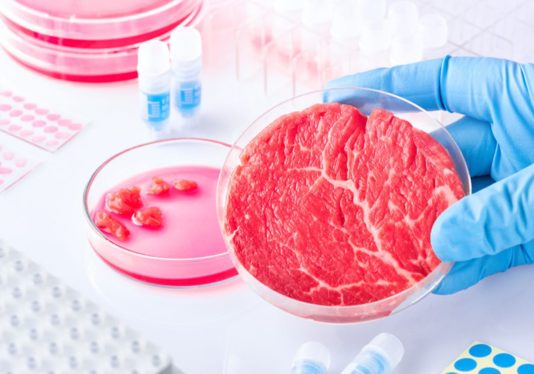The Wall Street Journal went under the hood of the lab-grown meat industry, also known as cultivated or cell-cultured meat, and the struggles within.
The Journal particularly homed in on what’s going on at UPSIDE Foods, which received a blessing from the U.S. Food and Drug Administration related to its process for making cultivated chicken, essentially saying it was safe to eat and making it the first company to receive this approval. Eat Just, which has been selling its product in Singapore, the first nation to approve the sale of cultivated meat, followed, getting its “thumbs-up” from the FDA in March.
WSJ’s story pays particular attention to UPSIDE Foods’ success at making small batches of its chicken product, as well as its lack of being able to produce large amounts of product at a low cost, or at even price parity with traditional meat — and to be fair, most cultivated meat companies struggle with this too.
“Initially our chicken will be sold at a price premium,” UPSIDE founder and CEO Uma Valeti told TechCrunch in November. “As we scale, we expect to eventually reach price parity with conventionally produced meat. Our goal is to ultimately be more affordable than conventionally produced meat.”
Companies in this sector make meat from animal cells that are fed growth factors. The production and pricing challenges presented in the WSJ story, however, are not new. “Is cell-culture meat ready for prime time?” wasn’t just a clever TechCrunch+ headline, but a legitimate question posed in early 2022 that still really hasn’t been answered.
Most cultivated meat stories in our archives include at least a sentence about how hard it is for companies to produce mass quantities and to create foods by this method so that the finished product is under $10 a pound.
The cultivated meat industry’s known struggles will take time to sort out, and maybe that’s OK by Christine Hall originally published on TechCrunch
https://techcrunch.com/2023/04/30/cultivated-meat-struggles-foodtech/


